Change Needed to Get Sailing in Paralympic Games
Published on May 30th, 2016
Since the decision to drop sailing at the 2020 Paralympic Games was taken, a lot of work has been done to increase the sport’s chances of reselection for the 2024 Paralympics, the decision for which should be taken in 2018.
This includes looking at the equipment used and trying to widen its appeal by lowering costs and maintenance, improving logistics, widening the range of sailors that can take part, as well as better showcasing the sport by introducing exciting formats to attract media interest and improve public understanding.
Betsy Alison, the Chairman of the Para World Sailing Committee and also the Paralympic Coach for the US Sailing Team, thinks that change is essential to getting sailing back on the Paralympic programme.
“One of things we are working towards is maybe a change in equipment and event format,” explained Alison. “In our Paralympic application for 2024, we’ll see more stadium type racing. I don’t know the exact format yet, but we want to make it more understandable to the public, more visually appealing and that is all in concert with the IPC’s (International Paralympic Committee) strategic plan.
“From what I understand, the word is that IPC is looking very favourably on sailing right now,” Alison continued. “They are happy with the initiatives that we have been taking and they are looking forward to our application for 2024. So I can honestly say I am very hopeful that sailing has a very strong possibility of being included in the 2024 programme provided we keep moving forwards the way we have.”
This week a second round of evaluation trials will take place at the International Sailing Centre Medemblik after the Para World Sailing Championships, which follows the first trials earlier in May on Lake Garda in Italy. Four of the five boats tested at Garda will also be in Medemblik – a range of monohulls and trimarans.
“Some of the criteria we are looking at is that it [any new equipment] has to be suitable for a wide range of disabilities,” noted Alison. “We absolutely do not want to lose any of the disability categories we have now. I know there is some concern from some of the more severely disabled sailors that there will not be a place for them but that’s totally not true.”
She says they will also be looking at how to increase the percentage of women participation.
“We also want to look to equipment that might be more publicly appealing and exciting to look at,” Alison added. “With non-technical boats we are exploring the possibility of sailors being able to turn up at events like World Cups and World Championships and have the equipment provided, so all you’d be able to put on the boat would be your steering and seating systems.”
Alison says they are considering moving away from the three person Sonar, which is logistically difficult to transport. “We can take some of those athlete numbers, put them into two singlehanded classes and get close to 30 countries in each single person division,” sais Alison. “If we could come close to doubling the numbers [of countries competing] how great would that be?”
This highlights another pressing issue, expanding the spread of Paralympic sailing worldwide. She states there is a lot of work in providing incentives for emerging nations such as in South America. “We are trying to get them up and rolling and if it is a more affordable format and they know there will be regional qualifiers in those countries and areas that have had limited possibilities to qualify to actually participate in the Games, there will absolutely be more representation. And I think that’s essential to worldwide growth.”
But in the short term there is another problem – funding.
“The disappointing part of being eliminated in 2020 is that it significantly impacts the financial support that the para sailors worldwide will receive from their national sailing authorities and their national Paralympic organisations or their disabled sports organisations,” shared Alsion. “So every one of us, whether local or national have to continues to support para sailing at the grass roots level and up to elite level to continue the progress we have made.
“I think we have to encourage people to come out for the world championships and do some regional based events,” Alison insisted. “The Regional Games Committee of World Sailing is excited about included para classes in their regional events, and that is a huge step forward.”
Summing up, she reiterates that the whole process is very complex and there is no easy answer. “But it’s important that the sailors out there know we are working on their behalf and we are listening to what they have to say. I really believe the future is hopeful and if all of us worldwide believe that and keep working toward the common end there is a very good chance.”
Source: Delta Lloyd Regatta 2016


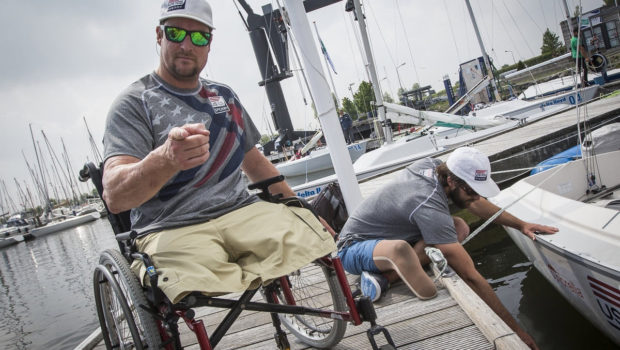
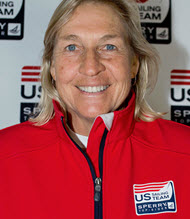


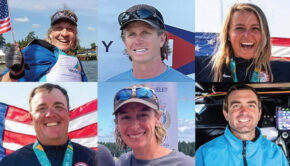

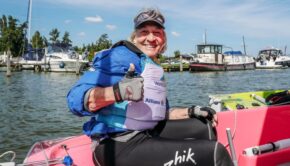
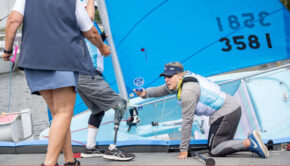
 We’ll keep your information safe.
We’ll keep your information safe.